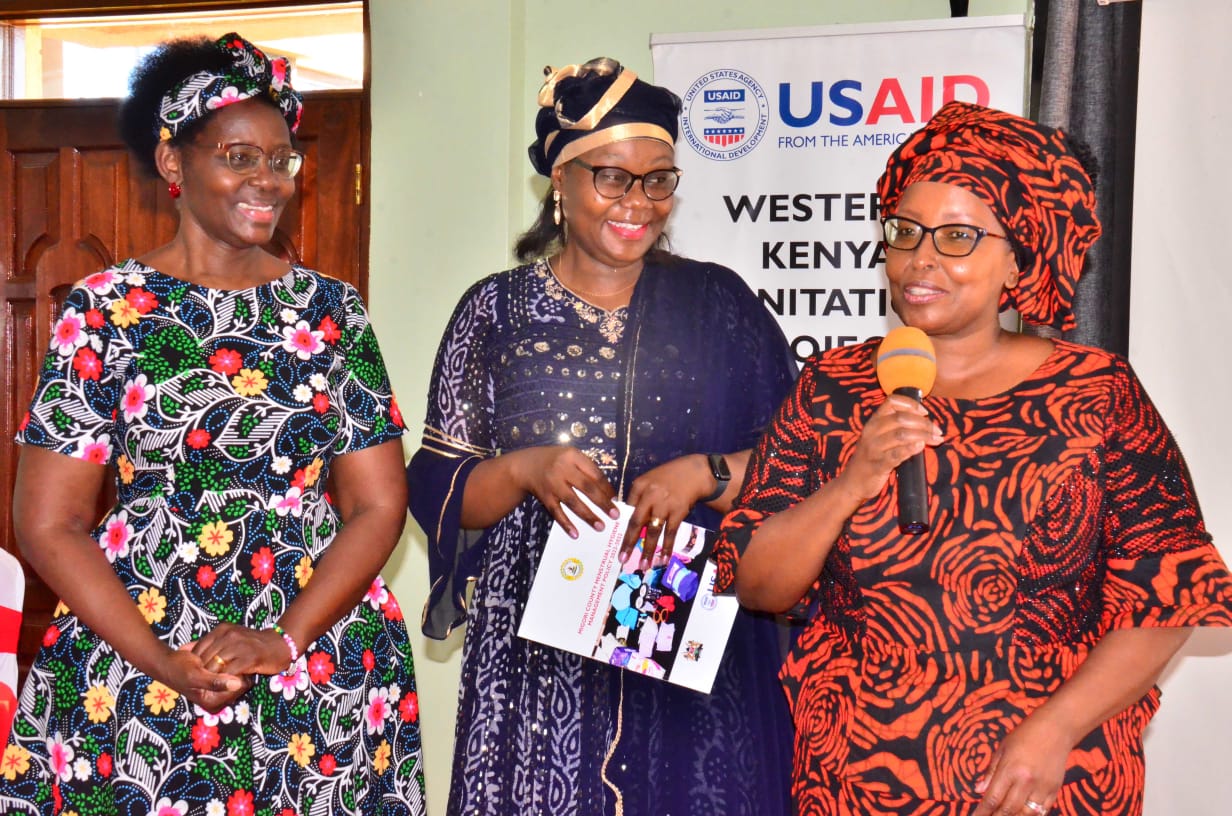Migori
Monday, May 13, 2024
KNA by Angeline Ogal and George Agimba
Migori becomes the first county to launch a Menstrual Hygiene Management Policy that addresses the access and safe disposal of menstrual products.
Through the support of organizations and partners including the West Kenya Sanitation Project, AMREF Kenya and Rongo University, the County aims to use the policy to tackle issues around the accessibility of menstrual products among the less fortunate in the society.
This is in addition to the management of menstrual waste products through proper disposal mechanisms, which will help in avoiding environmental degradation.
According to the County Director of Public Health and Sanitation Mr. Tom Odhong’, the document targets the needy and vulnerable in the community who are the most affected when it comes to obtaining, using, and disposing of menstrual products.
“The policy is customized to suit the community members in Migori County by way of assisting the needy and vulnerable girls and women while avoiding environmental degradation,” said Odhong’.
The health official noted that cases of absenteeism among students was on the rise due to lack of menstrual products and that the document comes handy in alleviating this challenge.
Moreover, he outlined that together with the partners, they have aligned the policy to enable efficient use of incinerators to burn menstrual waste instead of disposing them in pit latrines which clog and quickly fill septic tanks.
Through the systematic placement of bins in various institutions, Odhong said they aimed to collect all menstrual waste, which would be transported to the County Referral Hospital for burning.
The County Water, Sanitation and Hygiene (WASH) co-ordinator Duncan Arunda noted that the policy touched on innovation, research, entrepreneurship, and sustainability, through their partnership with Rongo University.
He revealed that the university, through its textile unit, would aid in the production of both disposable and reusable sanitary towels that would be made available to the locals.
According to Dr. Maurine Adoyo, a senior researcher at the institution, they produce 1000 And up to 20000 towels daily.
Though their production capacity is high, she regretted the low consumption rate despite many girls dropping out of school due to the inability to access menstrual products.
She also credited the low demand to ignorance and stigmatization, saying that many people associated the reusable towels with poverty.
The chairman of the legislation committee and representative of the County Assembly, Collins Haggai confirmed that the development of a work plan and budget for the next financial year to facilitate the project was underway.
“I want to indicate that this document had been passed by the Assembly. We had executed what is expected of us and a budget for this project has been tabled,” he said.
Courtesy: KNA


